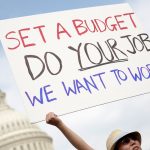A few days ago, the Federal Reserve revealed that student loan debt has been hurting the national homeownership rate. This is a new problem, as the homeownership rate has been dropping considerably since 2005. A lot of this has to do with the lack of young people buying homes. This correlates with the amount of student loan debt that they have.
A lot of it has to do with the great recession. Millennials saw what their parents had to deal with. Many Americans were near to having their homes foreclosed upon. As this generation grew up over the last decade, they developed little faith in the housing market. They don’t see homeownership as the investment our parents and grandparents did.
And still, a major part of this student loan debt. When you have $50,000 worth of debt, you’d be hard-pressed to get accepted for a mortgage. We reported previously that as many as 400,000 young adults were unable to buy a home. That’s because of the mountain of student loan debt in their possession.
It can take a decade or longer to pay off that much debt. As student debt continues to spike, homeownership rates have fallen. The average student loan debt per capita among 24-34-year-olds has doubled. Yet, the percentage of adults in that same age range who owns a home has fallen steeply from 45% to 36%.
The Burden of Student Loan Debt
Because more people are spending more money on student loan debt, it’s having economic repercussions across the spectrum. The Fed is beginning to report on an increasing number of economic challenges as a result of this problem. When you’re spending your money on debt, you don’t have anything extra.
“We estimate that roughly 20 percent of the decline in homeownership among young adults can be attributed to their increased student loan debts since 2005,” said report authors Alvaro Mezza, Daniel Ringo, and Kamila Sommer of the Federal Reserve.
The report also revealed that every $1,000 the cost of education goes up, there’s a 1%-2% drop in their likelihood of owning a home. That’s a major problem. Maryland Senator Chris Van Hollen is one lawmaker constantly speaking out against this crisis.
“Student loans impair their financial mobility — often preventing them from buying a home or putting away savings,” said Van Hollen.
More than Just Debt
The student loan debt problem goes way beyond just being a vacuum, sucking up every last dollar. No, it also pushes down credit scores. A lower credit score will prevent anyone from buying a home, leasing a vehicle, and more.
According to the Fed report: “Increased student loan debt causes borrowers to be more likely to default on their student loan debt, which has a major adverse effect on their credit scores, thereby impacting their ability to qualify for a mortgage.”
http://financialhelpers.com/how-furloughed-government-workers-can-manage-their-student-loan-debt/
“We must address this growing problem,” Van Hollen said. “That’s why I support efforts to allow students to refinance their loans to lower rates, improve implementation of the Public Service Loan Forgiveness program, and increase the Pell grant to cover more college costs.”
This is a major crisis that will only continue to grow. Colleges do not seem to care about the rising cost of an education. Lawmakers seem to only pretend to be concerned. Regardless of which party is in power, very little is done to combat the problem. Until someone steps up, student loan debt will continue to cripple the economy.




